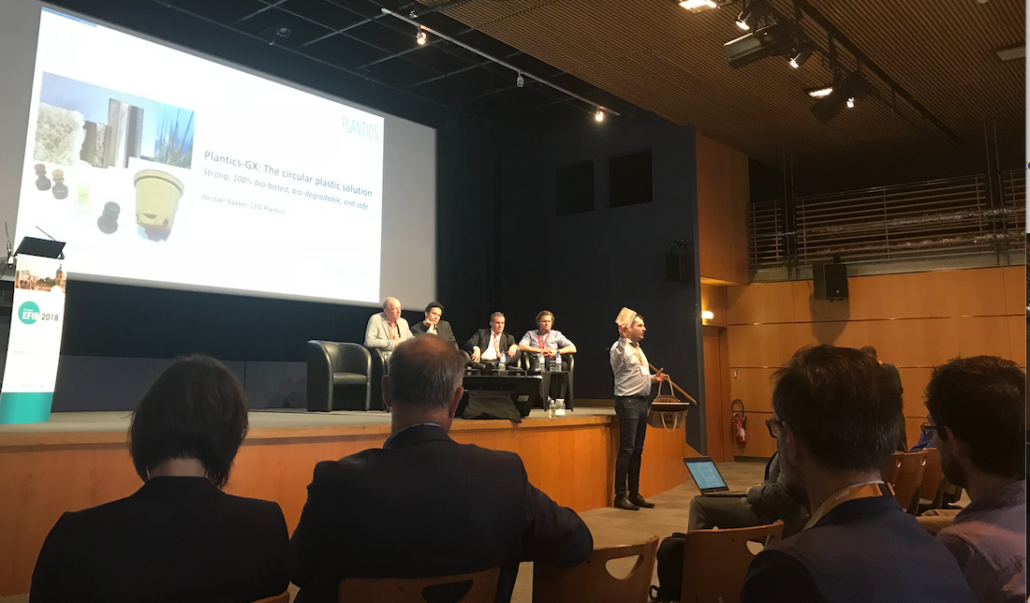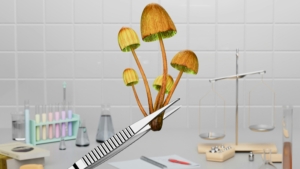
Companies at EFIB set to drive the bioeconomy
Industrial biotech innovations, presented in at the 11th EFIB in Toulouse, could become the key enabler set to save our planet if supported appropriately.
Company presentations at the 11th European Forum of Industrial Biotechnology and the Bioeconomy (EFIB, 16-18 October 2018) clearly demonstrated that a huge range of European start-up companies and industry majors have technological answers to the world’s most devasting threats in their portfolio: rising levels of the climate gas CO2, plastic pollution of the oceans, healthy nutrition to feed the world.
At the international meeting (240 companies, stakeholders from 31 nations), organised by EuropaBio with support of Toulouse White Biotechnology and BIOCOM AG, Lise Kingo, CEO United Nations Global Compact, made clear, that facing a future in which our oceans will have more plastics than fish, we have to stop making business as usual. However, the good news is, she said, we can transform global threats into business opportunities.
Wolfgang Burtscher, Deputy Head of DG Research & Innovation of the European Commission, agreed stressing that the Commission is very pleased with the output of the BBI JU, the €3.7bn public-private industrial biotech and bioeconomy partnership to which the EC contributes with €1bn of funding. However, as mentioned in the EC’s new bioeconomy action plan, the Commission wants to accelerate the switch from unsustainable, environmentally unfriendly throwaway products to a sustainable circular bioeconomy. We need a drop of 45% in CO2 emissions to meet the goals of the Paris agreement, he said adding that breakthrough innovations in the bioeconomy field might be funded in the next research framework programme Horizon Europe through the newly created European Innovation Council. He also said that the bioeconomy could significantly help Europe to meet the UN’s sustainability development goals.
Another good news was that the Commission wants to renew its commitment of the BBI JU though it has still to determine how much it is worth for the Commission to support CO2-neutrally green technologies, closed-loop production of bulk plastics, new protein sources from waste, wood or algae, healthy nature-derived protein sweeteners preventing diabetes and other technological solutions provided by the growing White biotech industry.
At the event, which exhibited innovations of 24 start-up companies in a Start-up Village, had 10 tracks on hot bioeconomy topics and finance, investors and companies made clear that the switch from petroleum-based optimised processes to sustainable production and services needs huge policy backing. As production cost are high, it’s still tough to get paid for a sustainable product, said Renee Henze, Global Marketing Director of Biomaterials, DuPont Industrial Biosciences. Other stakeholder welcomed the EIBs €100m loan initiative to fund the circular bioeconomy (Circular Bioeconomy Investment Platform) as a positive signal. As costs for a new production facility range between €50m and €500m, particularly small innovators would benefit from additional access to capital, stakeholders told European Biotechnology Magazine at the meeting, which saw huge partnering (674 one-to-one meetings) and networking activity.
Innovative industrial biotech approaches presented at EFIB included an enzymatic process developed by French Carbios SA to recycle PET down to its monomers, envisioning closed-loop production/recycling of a non-degradable plastic of which 70 million tons are produced annually and which is one of the most common polluters in marine littering and found in the stomachs of seas birds.
Another innovation in the sustainable bio-plastics field, which is a new priority of the EC, was awarded in the EFIB PitchFest of five innovative companies. Dr. Wridzer Bakker, CEO of Dutch Plantics NV, received it for a plant-derived, 100% biodegradable and compostable, non-inflamable, heat resistant bio-plastic foam which can compete economically with conventional petroleum-based plastics. Furthermore, the thermoset resin’s feedstocks glycerol and citric acid does not compete with food production and is broken down to its molecular components in water. The John Sime Award was handed over by EuropaBio’s new Secretary General, Joanna Dupont-Inglis to Matti Heikkilä from Finnish MetGen OY for the company’s Innovative Wood Biorefining showcase that includes new opportunities for lignocellulosic biomass processing, enabling more affordable industrial processes as well as new renewable chemicals.
Other innovations presented at EFIB included a recombinantly produced protein sweetener derived from an African fruit that exactly tastes like sugar without triggering sugar overconsumption-associated chronic diseases such as diabetes (Magellan Life Sciences). Industry stakeholders said that they are still waiting for a clear commitment of the Commission to biotech methods, which are crucial to convert the biobased resources delivered by agriculture, forestry and fishery into products of the upcoming bioeconomy.



 Bayer AG
Bayer AG